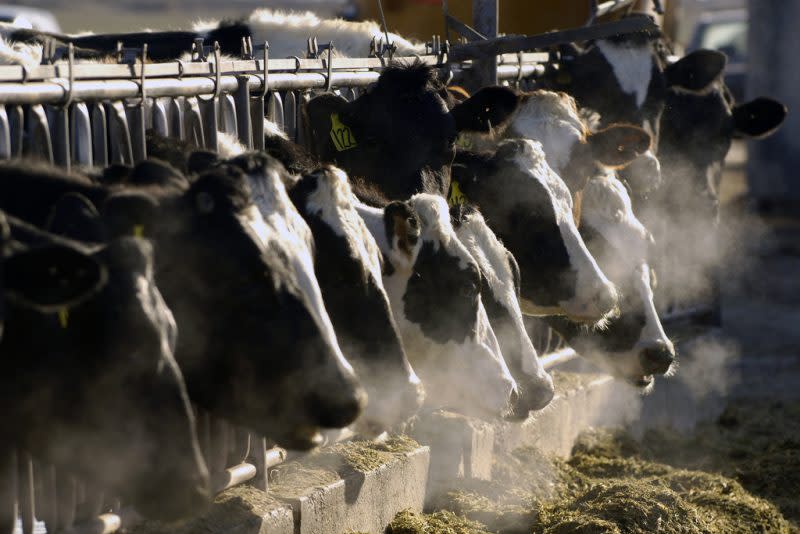Bird flu continues to spread in dairy cows nationwide — should you be worried about drinking milk?

SALT LAKE CITY (ABC4) — A spread of Highly Pathogenic Avian Influenza, or bird flu, continues to infect dairy cows throughout the United States. As of May 6, Colorado was the most recent state to report cows testing positive for the virus, making for the third adjacent state to Utah.
So should you be worried about drinking milk? Veterinary and animal science experts say no, as long as you’re not drinking raw milk.
Raw milk carries several potentially dangerous microbes. Typically, that milk will go through a high-temperature process of pasteurization that destroys the influenza virus and other bacteria. Utah Veterinary Diagnostic Laboratory Director and veterinary pathologist Dr. Tom Baldwin said that the process was originally started to control the spread of tuberculosis.
“And since pasteurization kills those bacteria, it will certainly inactivate flu virus,” said Baldwin.
As for the cows who are affected by the bird flu, Baldwin said there aren’t any long-term concerns either. He said the virus does not kill any dairy cows and there aren’t any long-term effects on milk production either.
UVDL veterinary pathologist Dr. Carmen Lau said infected cows do have a sharp drop in milk production, have a low-grade fever and produce thicker manure.
If farmers and dairy workers believe their cow has contracted the bird flu, they are encouraged to move the sick animal to a hospital pen and immediately contact their veterinarian. Baldwin said the state will cover the cost of the test for the virus but the samples have to be officially collected from an “approved sample collector.”
While there is a lot of focus on the bird flu in dairy cows, Utah State University experts say the virus still primarily affects birds. It is particularly deadly in chickens and some other birds. While it is technically possible for humans to become infected with bird flu, Lau said, to date, even poultry farm workers are rarely infected.
Baldwin said there will be less of a concern for bird flu as temperatures continue to warm up for the summer months. The virus does not thrive well in hotter temperatures and fewer migratory birds that transport the disease will be traveling through and stopping in Utah.
For the latest news, weather, sports, and streaming video, head to ABC4 Utah.

